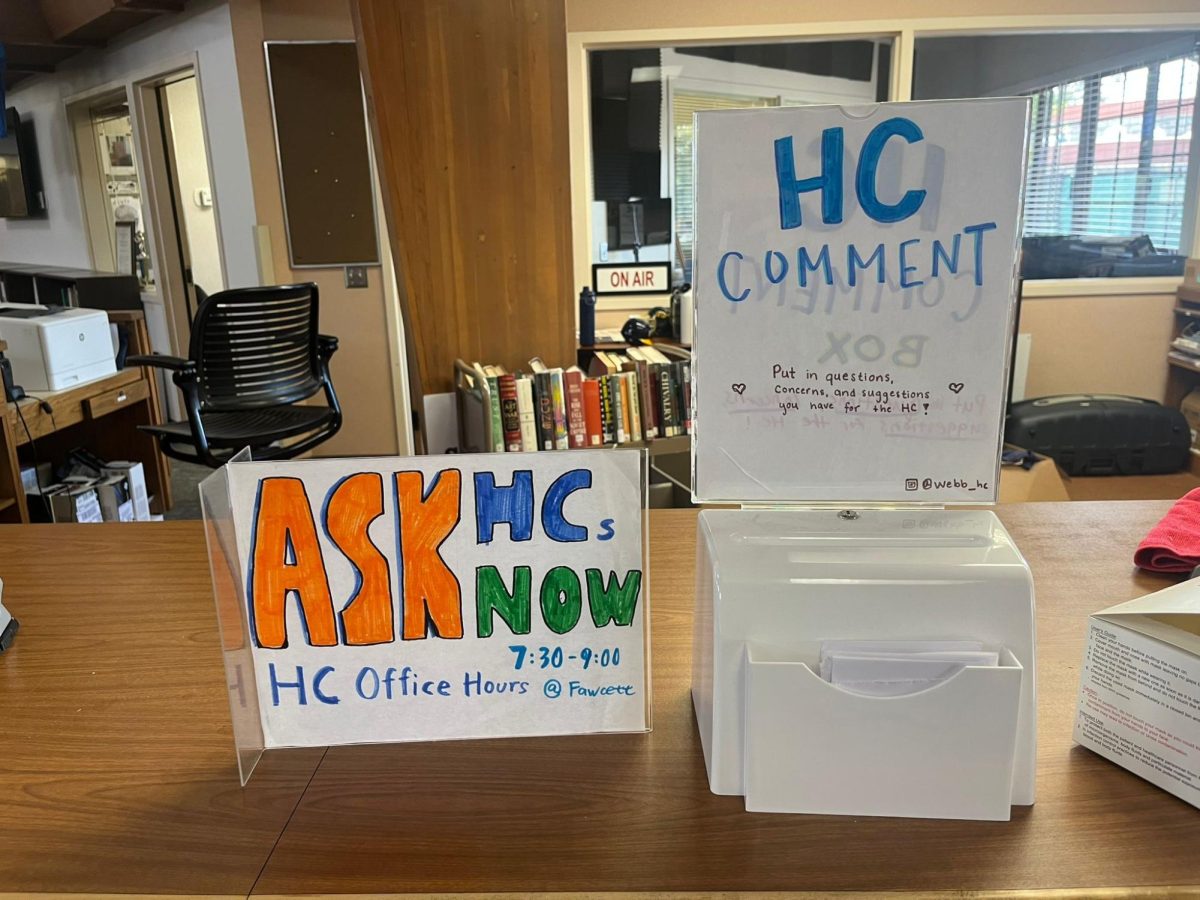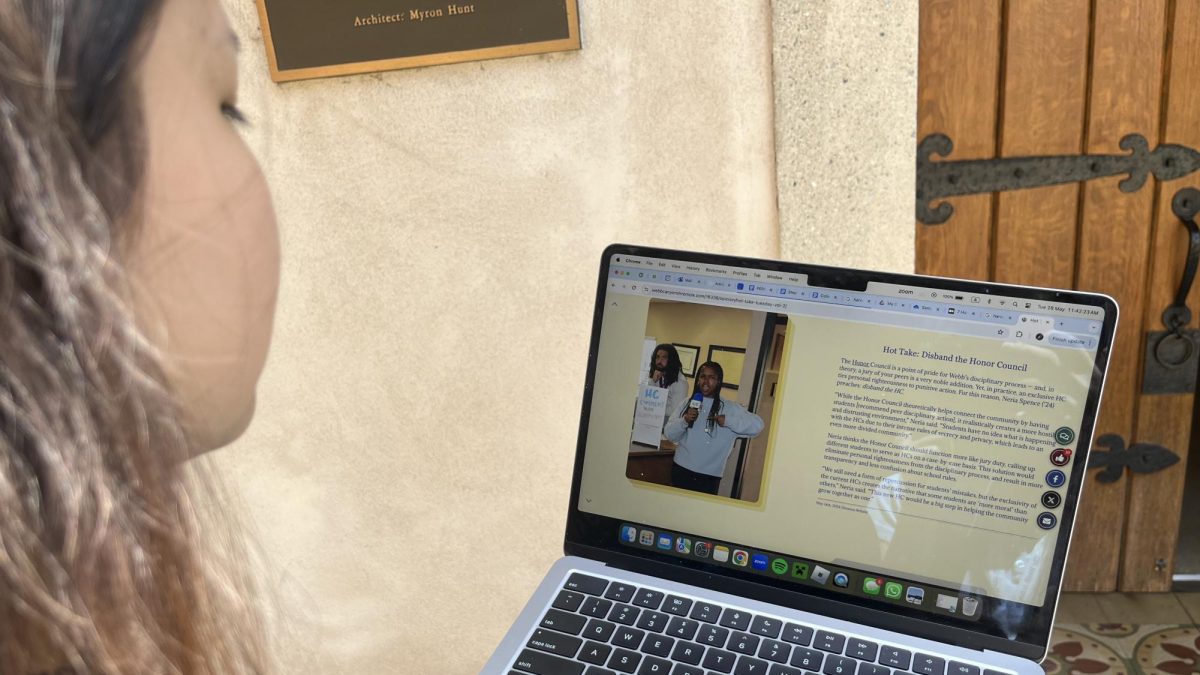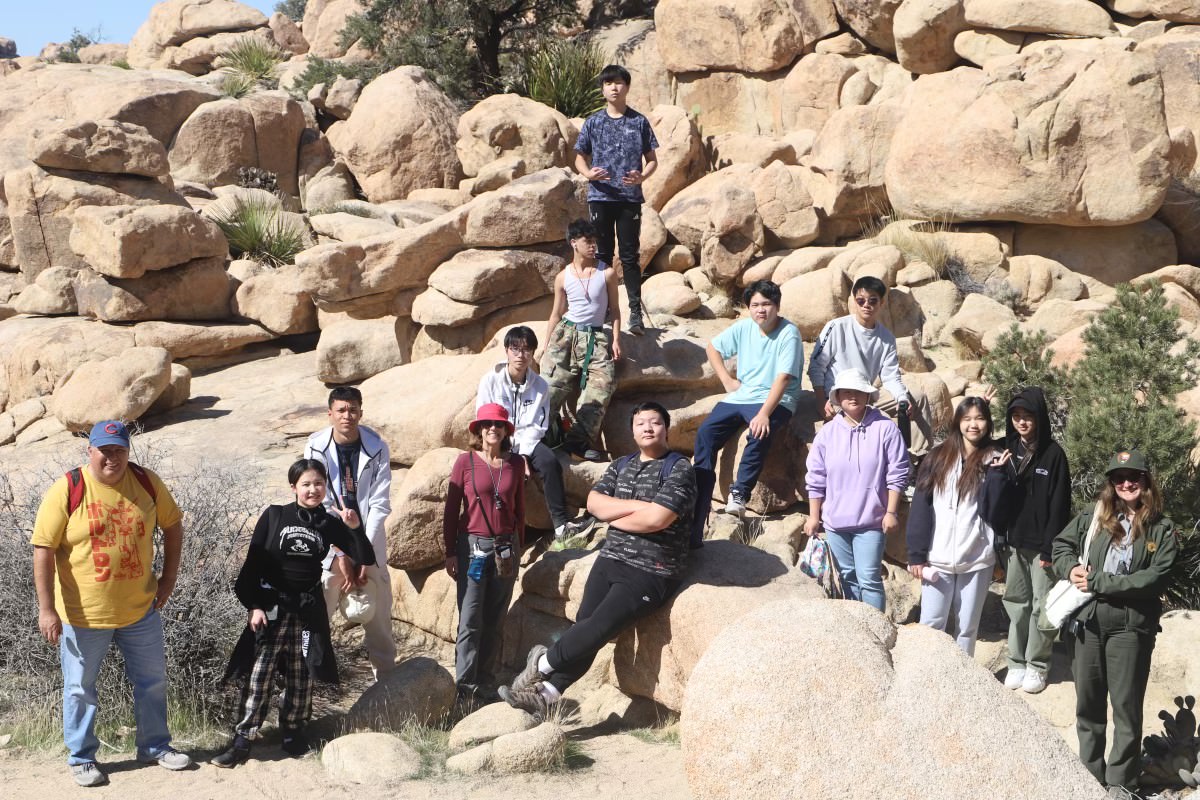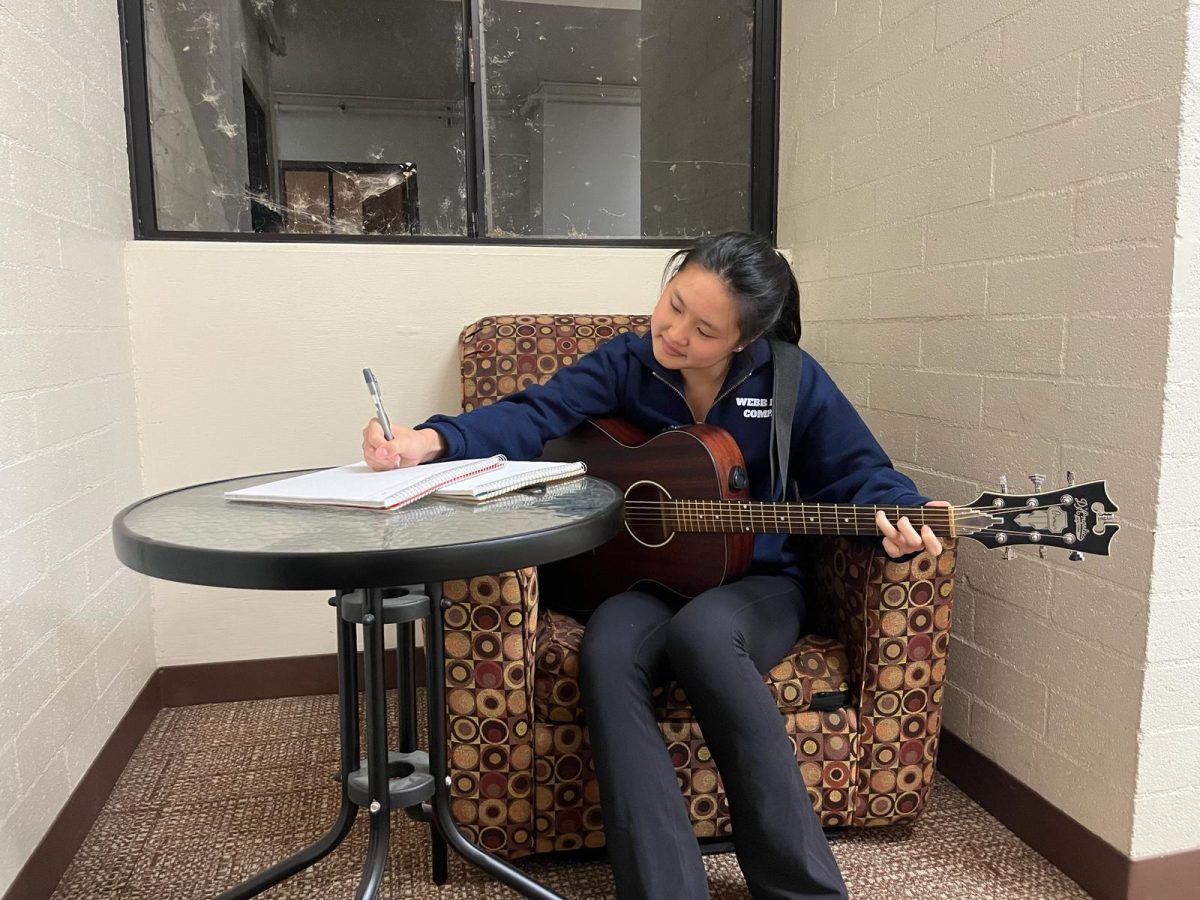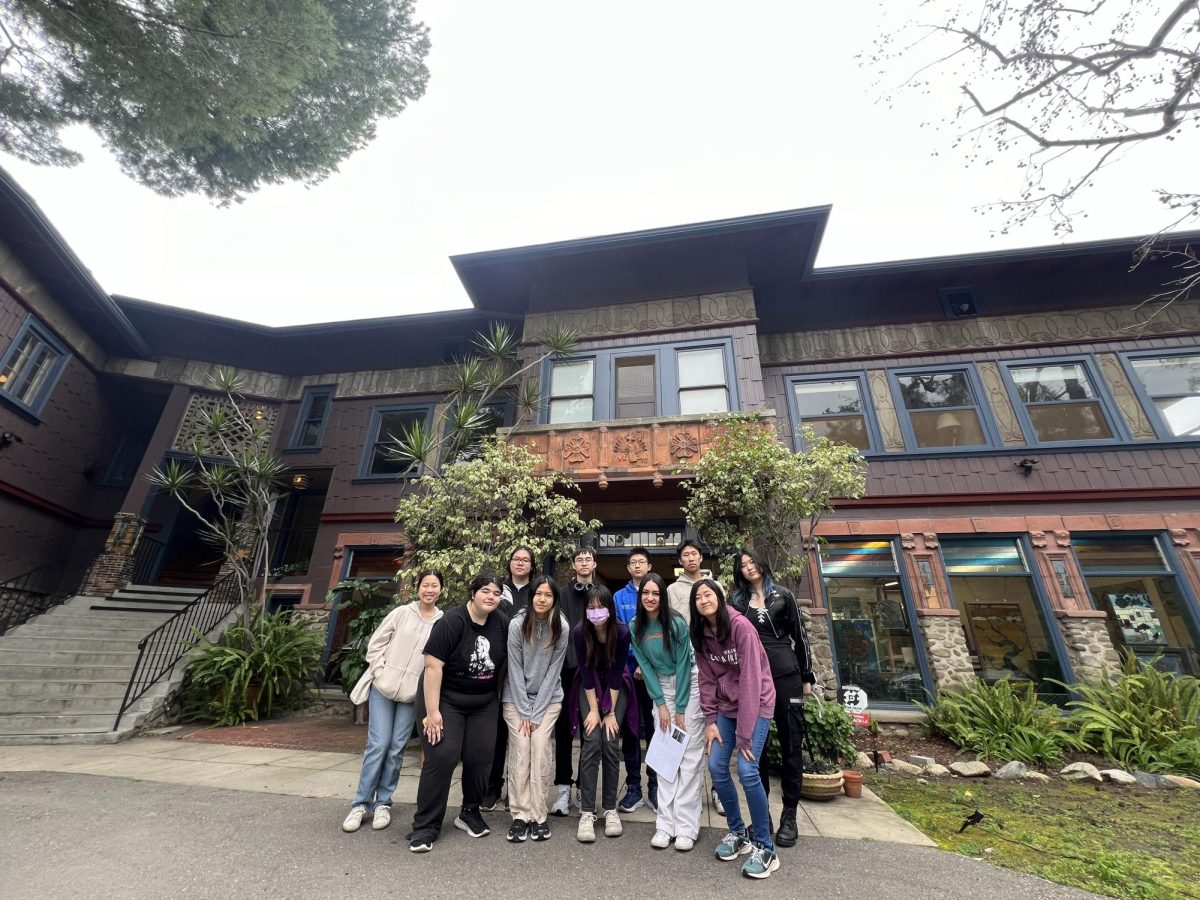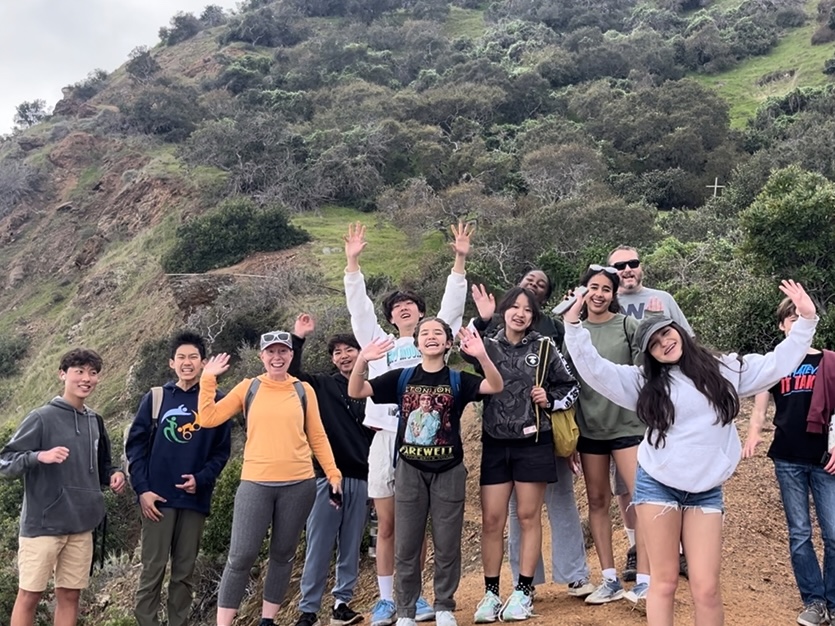This is the WCC honor council column’s question and answer section. We will be answering questions and comments raised in the HC comment box.
What is the HC for?
The HC process is a part of the larger disciplinary process. The role of the honor council is to facilitate the HC meeting and to act as a student resource by guiding students through the disciplinary process. During the meeting, HCs are given a report of the case by Dean Lantz and ask questions relating to the incident. The main goal of the meeting is to encourage reflection and provide support on how to move forward from the incident and rebuild trust with the Webb community. Following the meeting, the HCs recommend a disciplinary consequence to the Deans of Students, who makes the final decision in partnership with the Assistant Head of Schools. An HC member also follows up with the students after the cases.
How are you going to know if I am lying or not?
A common misconception is that the HC is an investigative body –– the role of our positions is to receive information, use it to guide the student, and recommend disciplinary action. We do not investigate the case or make assumptions; we trust that each student is honest during an HC meeting and facilitate the meeting based on the report that we receive from Dean Lantz. HC meetings are to encourage reflection, and to lie would take away from that process. However, it is important to note that students caught lying in an HC meeting are considered to have grounds for expulsion.
Can HCs be removed from the honor council?
If members of the honor council violate the honor code, they will receive appropriate disciplinary action which can include being removed from the HC. Being a part of the HC does not protect students from disciplinary action; in fact, student leaders at Webb are held to higher standards and normally receive harsher consequences.
I think this box might increase false claims, which can discredit legitimate victims in their claims.
The HC comment box is not a platform for reporting. It is an accessible, anonymous space for students to provide questions, concerns, and comments regarding the HC. The goal of this comment box is to demystify the HC process to the Webb community, as well as answer common questions.
If you want to file a report, you should go to Dean Lantz’s office or email her. After Dean Lantz is informed, she will determine if a formal investigation needs to begin and talk directly to the students involved. Another anonymous reporting channel is Lighthouse, which you can access here.
For students who feel nervous about reporting, they can ask an HC to go guide them throughout the process and approach Dean Lantz together. The 2023-2024 HCs can be found below.
WSC HC: Sehoon Kang, Ale Fountain, Hanbo Xu, David Liu, Jonas Sun, Erik Sun, Scott Wishek
VWS HC: Jenny Wang, Nicole Rabadi, Jovana Luna, Kathy Duan, Steph Ma, Frannie Hinch, Alexis Mumbo
I heard from faculty that suspension of any length goes into permanent record.
All disciplinary action is kept in an internal record at Webb. In the college application process, college guidance notifies colleges about disciplinary violations on a case-by-case basis, usually a 5 day or more suspension or separation from the school. However, the Deans get the final say in whether the suspension goes on record to the colleges.
We shouldn’t have student-run meetings when personal issues are discussed.
Many cases involve personal issues that might come up during a meeting. All HC members are pledged to confidentiality and are not permitted to share these topics.
Exceptionally personal and sensitive circumstances, such as sexual harassment, will not come to the HC. All cases act on a case-to-case basis, and it is Dean Lantz’s decision on whether or not to involve the HC. To limit gossip and enforce confidentiality, HCs are not given information about cases, including student names, details of the case, and people involved until the meeting starts in Jackson Library.
John Choi, Director of Equity, and Melanie Bauman, Director of Counseling and Health Education, offer guidance and sit in on meetings when we receive cases that are identity based or related to mental health.


